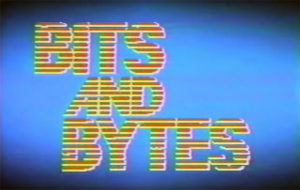It’s time to head back to 1983, to a time when the PC as we know it was in its infancy, and the home computer market was still dominated by the likes of Commodore, Atari, Apple (pre Macintosh, mind you), and Tandy (at least, here in the North American market – it was a slightly different story in the UK and Europe.)
Bits and Bytes was a Canadian program about the early Microcomputer scene that did more than just discuss the technology (which is what Computer Chronicles tended to do) but it also was instructional and educational on the intricacies and actual operation of microcomputers in the early 80’s. Ah, the days of Basic interpreters and DOS prompts… better times, before every idiot on the street had an internet connection in their pocket and didn’t care what they said to others, right?

Okay, sorry about that one (not really.) Back to the point, for those interested in the early Microcomputer scene, or looking to buy an old computer for some retro goodness, this show does a great job showing you everything you need to know, and more, to at least understand what you are getting into.
I do want to note that since the show is Canadian, the legendary accent is afoot through the program. Host Luba Goy has an extremely thick accent on some words, and for someone like me, it’s a little grating on the ears. Just warning you ahead of time, in case that accent isn’t your cup of tea, so to speak.
https://en.wikipedia.org/wiki/Bits_and_Bytes
On to episode one, this covers the extreme basics of turning the system on, loading a program from tape, basic binary logic, floppy discs (something many kids today will have never used), the science behind floppy disk data storage, and even a basic course in if-then logic!
Like I said here, quite a bit of beginners information, but still something that, once you understand it, makes computers so much more easy to “figure out”, especially these early, very directly controlled machines.
